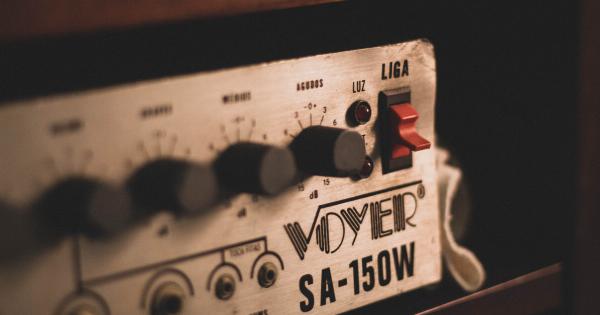Dementia is a neurological condition that affects millions of people worldwide. It is characterized by a decline in cognitive abilities, memory loss, and behavioral changes.
The Impact of Dementia on Quality of Life
Dementia can significantly impair the quality of life for individuals affected by the condition. It can lead to difficulties in performing daily activities, social isolation, and a decline in overall well-being.
Non-Drug Therapies for Dementia
While medication can be used to manage certain symptoms of dementia, non-drug therapies have gained significant attention for their potential to improve the quality of life for individuals with dementia.
These therapies focus on providing holistic and person-centered care.
Sensory Stimulation
Sensory stimulation therapy involves activating the senses of individuals with dementia to enhance their cognitive and emotional well-being.
This therapy can involve activities such as listening to music, smelling essential oils, or engaging in light exercise.
Music Therapy
Music therapy has shown promising results in improving mood, reducing agitation, and enhancing communication in individuals with dementia.
Listening to music or engaging in musical activities can stimulate memories and emotions, promoting a sense of well-being.
Art Therapy
Art therapy provides an outlet for self-expression and creativity. It can help individuals with dementia express their thoughts and emotions when verbal communication becomes challenging.
Engaging in art activities can also promote relaxation and a sense of accomplishment.
Reminiscence Therapy
Reminiscence therapy involves recalling past memories and experiences through conversation, storytelling, or looking at old photographs.
This therapy can foster a sense of identity and promote social interactions among individuals with dementia, improving their overall well-being.
Pet Therapy
Interacting with pets, such as dogs or cats, can have a calming and positive effect on individuals with dementia. Pet therapy has been shown to reduce agitation, improve social interactions, and increase feelings of happiness and comfort.
Aromatherapy
Aromatherapy involves using essential oils to promote relaxation and reduce stress. Certain scents, such as lavender or chamomile, can have a calming effect on individuals with dementia and help improve their sleep patterns.
Validation Therapy
Validation therapy focuses on empathetic communication and validating the emotions and feelings expressed by individuals with dementia, even if they don’t align with reality.
This therapy aims to reduce feelings of confusion, frustration, and agitation.
Exercise Therapy
Regular physical exercise has numerous benefits for individuals with dementia, including improved cardiovascular health, increased mobility, and enhanced overall well-being.
Exercise therapy can involve activities such as walking, stretching, or dancing.
Socialization and Support Groups
Participating in socialization activities, such as support groups or social gatherings specifically designed for individuals with dementia, can provide a sense of belonging and reduce feelings of isolation.
These interactions offer opportunities for individuals to share experiences and receive emotional support.
The Role of Non-Drug Therapies in Enhancing Quality of Life
Non-drug therapies play a crucial role in improving the quality of life for individuals with dementia. These therapies focus on addressing the holistic needs of individuals and promoting their overall well-being.
By enhancing communication, reducing agitation and isolation, and providing outlets for self-expression, these therapies can significantly impact the lives of those affected by dementia.































